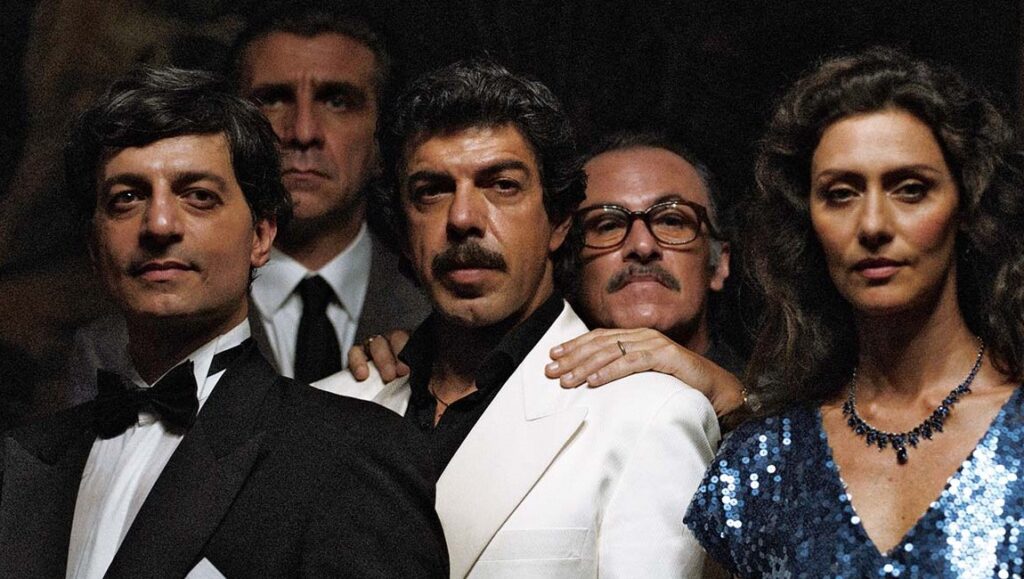The Traitor operates as both biopic and mob flick, reveling in the murky complexity of its central figure.
A biopic of Mafia boss Tommaso Buscetta (played splendidly by Pierfrancesco Favino) — nicknamed “the boss of two worlds” for being a snitch for the Italian government, in one of the country’s largest mafia trials — Marco Bellocchio’s The Traitor attempts to understand the psychology of a betrayal. Buscetta went against La Cosa Nostra (as the mafia is called here), in part because he felt the organization had moved its moral compass, getting involved in the drug trade and dispensing with anyone who got in their way. While it’s understood that Buscetta was largely forced into the role of informer — we see a gruesome sequence in which the Brazilian police threw his then wife from a helicopter right before his eyes — his experience within the organization influences his decision to turn. Even as the former mobster throws everyone he knows under the bus, however, he’s also wracked by remorse. This is especially evident during Buscetta’s courtroom confrontation of Pippo Calò (Fabrizio Ferracane), a supposed friend of Buscetta’s since childhood, but who later kills two of his sons.
As the saying goes, familiarity breeds contempt — and that’s an expression that might also be applied to the experience of watching this film. Two familiar genre frameworks inform how The Traitor unfolds: the biopic and the mob movie. And, to be sure, Bellocchio frequently adheres to formula. But he also displays a disarming compassion for everyone involved. We’ve seen snitches in court scenes numerous times before; less common are scenes like the one in this film, in which Buscetta processes his willingness to personally forgive someone who’s killed members of his family, but remains committed to seeing them serve time for their crimes. The Traitor relies on the complexity of this central struggle, and especially on Favino’s performance — the way the conflict on his rugged face translates into our own conflicted feelings about how to view the character.
Published as part of January 2020’s Before We Vanish.


Comments are closed.